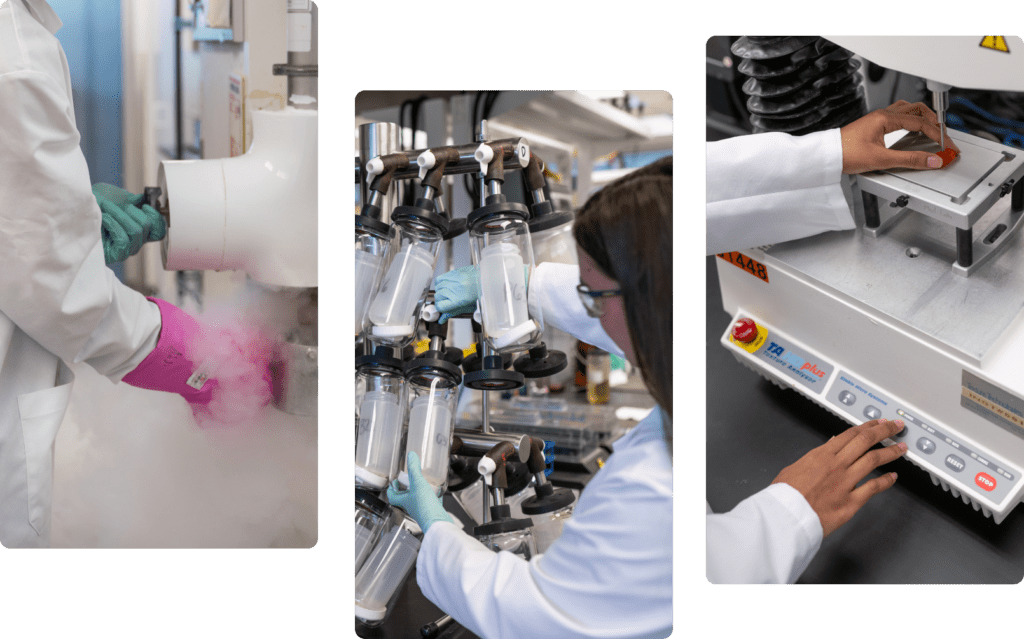Calibrate my factory equipment
Whether you are designing a new pump system, switching equipment, seeing performance issues, or wanting to better understand your product, we have testing options to dig into the properties of your ingredients and reach your next goal.


Understand product flow properties in your manufacturing process
Get insight on flow properties when developing or improving your food production systems, creating a new process, or introducing a new pump system.
Viscosity by Rheology Property Characterization Test
Unlike many viscosity tests, this rheology test allows for more flexibility in measuring the physical properties of a product. While specific parameters and settings are useful, this flexibility allows us to tailor this test to reach your goals and answer questions even if previous testing has never been conducted. Rheometers are used to understand viscous and viscoelastic properties. This method allows for individualized instrument programing for each sample to determine viscosity of a product. This test is more flexible for settings compared to the Brookfield.
Viscosity by Rapid Visco Analyzer Test
This method, specific to grain products, measures viscosity through a cycle of heating, holding, then cooling.
Physical characteristics
The physical characteristics of a sample or an ingredient is important to consider when handling new products or new equipment.
Differential Scanning Calorimetry (DSC) Test
This test measures different physical and thermodynamic properties of your sample, such as: melting temperature, protein denaturization, fat melting characteristics and many more applications.
Particle Size Distribution (Alpine Granulation) Test
Sieves are used to physically separate the particles in the sample. Uses an air flow to assist samples through sieve openings. Recommended for samples that easily form clumps or are sticky.
Particle Size Distribution (Microtrac) Test
Uses Laser Diffraction to provide a graph and detailed report of particle size distribution. Allows for a wide range of particle size to be analyzed without the need to specify sieve size. Recommended for most types of samples, including liquids.
Particle Size Distribution (Rotap) Test
Traditional method to measure particle size. Uses sieves to physically separate particles in the sample.
View tests by use case
Our 2025 price catalog
We have the expertise you need to get your product to the table with confidence.
Download catalogFrequently asked questions
We are here to help make sure our testing will meet your needs. Contact Customer Service if you have previous testing information and we can help guide test selection.
Example reports can be found on the tech data sheets for several of these tests. If you have a specific goal for testing (such as buying a pump, or measuring the melting point), feel free to contact Customer Service before submitting so that we can better interpret results for you.
Our food testing experts are here to help.
"*" indicates required fields

Expert resources
Submit your order online and ship your samples today. If you have questions, we are always here to help.
A food testing program designed with mid-market and enterprise food and ingredient manufacturers in mind.
